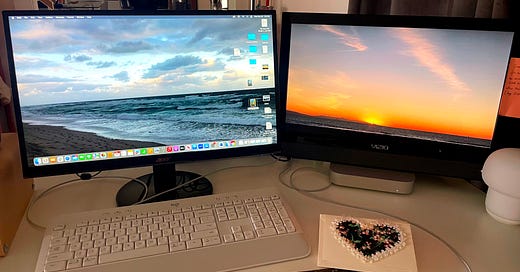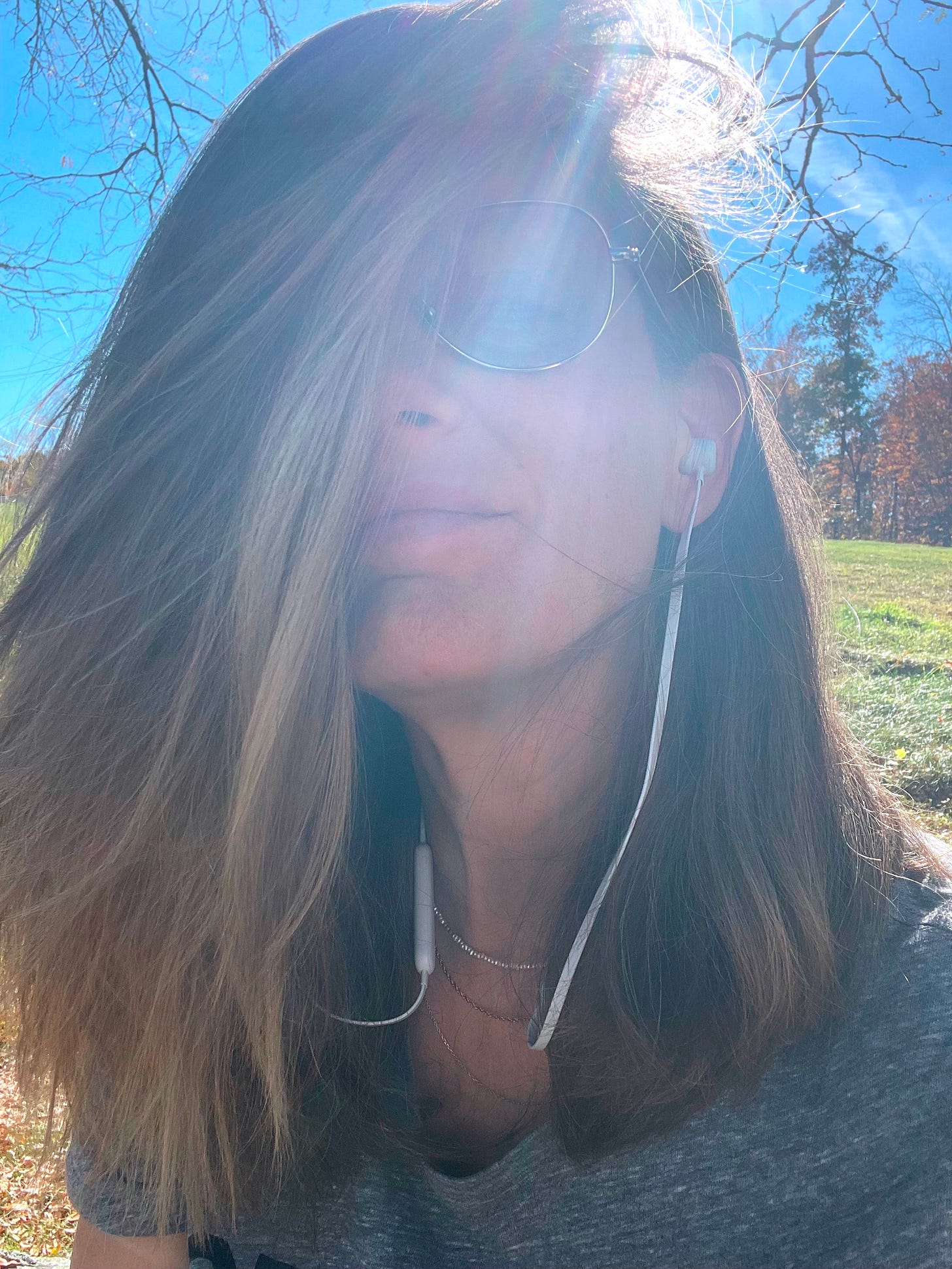Because I was born two years after my family emigrated from Germany to America, I became the first American of the family. Because we lived in a big German diaspora, we were surrounded by German families and doctors, attended a German church and my brothers and I went to a German school. Even though I lived on American soil, I was raised as if I was in Germany. It was a social and cultural bubble. My childhood home was another bubble inside of that bubble—a language bubble. Within its walls, we only spoke German to each other and at night, when my mom came to tuck me in, she read bed time stories and sang lullabies to me in German. Once I fell asleep, I dreamt in German.
While I talked in full German sentences by the age of two, my English was cobbled together from random things I heard on TV, lyrics emanating from my dad’s record player or tid bits overheard in the grocery store when my mom took me with her to run errands.
So, my two, much-older-than-me brothers took it upon themselves to build out my vocabulary. And one night, before I turned three, with the full family collected around the dinner table for a meal of pork chops, mashed potatoes and of course, Sauerkraut (home-made from scratch), I was excited to show off the newest word I had learned from them.
“Shit!” I exclaimed.
“Hellachen! Was hast du gesagt?” my dad asked. Little Hella! What did you say?
“Shit?”
“Nein, Hella. Das sagt man nicht. Und auf keinem Fall wenn man an dem Tisch sitzt,” my mom chimed in with a stern tone in her voice. No, Hella. You don’t say that. And certainly not when sitting at the dinner table.
My brothers snickered into their napkins. My parents looked at them disapprovingly. And I curled up my lower lip and bit my tongue.
Soon after, my mom took me next door to the neighbors’ house to see Mrs. K. She was a whip smart woman from Tennessee and a retired school teacher so my mom asked her to teach me English. Delighted with the idea, Mrs. K took me under her wing and made sure that I not only learned English, but that I mastered it. In fact, she taught me the language of my surroundings, the world outside of any kind of bubble, so thoroughly that I could soon speak non-stop, in alternating fashion, in two languages.
And that’s what I did.
Any chance I got, I talked. And talked. And talked. I yammered away with Mrs. K’s three sons. I grabbed the microphone when my dad filmed home movies and made myself the narrator. I told long-winded stories at gatherings on the back porch at my house. But because I was still too young for Kindergarten, I could not join my brothers when they left to take the bus to the German School. So, my parents sent me to the local American pre-school. Not only would I be out of the house like my brothers, but I would also have a whole new group of people to talk to for hours at a time.
When my mom dropped me off on my first day, I bounced over to the teachers waiting outside and greeted them with a hearty, drawn out:
“Hey ya’all! How ya doin’?”
I will never forget the look of confusion on their faces. They knew my parents were German because they spoke English with thick German accents, so I could not have gotten my Southern drawl from either of them.
“Oh, how cute. How did she get that drawl? Is she adopted?” one of them asked my mom.
“Was?” What?
“Her southern drawl. How did she get that?”
“Was? Ach. Vell…” What? Oh. Well…
My mom was flustered. She had no idea that when Mrs. K taught me English, she also passed on to me her deep southern drawl. She felt put on the spot to explain something she did not know was even a thing. And to top it all off, either jokingly or seriously, that one teacher even suggested I might be adopted to explain why I was so different from what she knew of my family. With all of that going on in my mom’s second language, one that she learned by watching others speak it on TV, she did not feel equipped to respond.
And I picked up on her uncertainty. Unlike her, I fully understood the questions and I knew the answers. But I was stuck in the middle. I looked back and forth from my mom to the teachers and back to my mom. No one said anything else. It was an extended pregnant pause and it made me deeply uncomfortable. What at first felt like an acknowledgement of my unique situation now felt like a spotlight on my otherness. It was palpable and it made me uneasy. Since nobody was breaking this awkward silence, I said the first thing that popped into my mind.
“Mama, du kannst gehen. Bis spaeter!” Mama, you can go. See you later!
She looked at me with a tinge of hurt in her eyes. Instantly, I felt bad. Now all I wanted to do was to reach out to her and touch her so I ran over to her and tried to clutch onto her leg. Before I could, she turned away and walked back to her car. As I watched her drive away, I hung my head.
I was an American but only because I was born here. I was German but only because I had German parents, not because I lived there. And instead of speaking English with a German accent, I spoke it with Southern drawl which made it seem like I came from a whole other place—a place to which I had never been. That meant I was not one or the other, either or both.
Today I no longer live in that kind of bubble and I do not feel that kind of different. But, for the past ten years, I worked in a family business that was built around the passions of others—not mine. And for over ten years before that, I chose to settle for the comfort of managing someone else’s dreams rather than pursuing my own. Most of my life, I willingly set aside the gift of straddling two worlds—a great capacity to hold complexity, a boundless curiosity and an innate creativity.
Inevitably, all that brought me to place of change—not just of career, but of…everything. While that does not make me any kind of other out in the world, it does make me feel other—to myself. And sitting in the discomfort of that feeling, there is a new language I get to learn to speak. The more practice, the more fluent I will become. Eventually, it will be the language in which I dream.
For what it’s worth, and for whatever it means down the road, today I choose to live at the edges of my comfort zone; to love myself as I am, where I am, for who I am; and to embrace myself as one—not the other.






Oh my gosh Hella!!! I’m his is such a beautiful description and explanation of feeling and being “different” and “not belonging”. Thank you❤️